Perhaps you’re thinking—basis the title—she’s gone too far this time. What does she mean we were created to BE Priests?
You don’t have to take my word for it. It’s in the Bible…from the beginning to the end.
In Genesis, Adam and Eve were to work the Garden and take care of it. This is the Lord’s sanctuary; and Adam’s and Eve’s combined act of worship was their serving God by taking care of the place where God met with them. In the Garden of Eden, Adam and Eve were priests.
A stretch, you think? Well, take a look at this one:
Then Moses went up to God, and the LORD called to him from the mountain and said, “This is what you are to say to the house of Jacob and what you are to tell the people of Israel: ‘You yourselves have seen what I did to Egypt, and how I carried you on eagles’ wings and brought you to myself. Now if you obey me fully and keep my covenant, then out of all nations you will be my treasured possession. Although the whole earth is mine, you will be for me a kingdom of priests and a holy nation.’ These are the words you are to speak to the Israelites.” So Moses went back and summoned the elders of the people and set before them all the words the LORD had commanded him to speak. The people all responded together, “We will do everything the LORD has said.” So Moses brought their answer back to the LORD. (Exodus 19:3-8)
When we obey God fully and keep His covenant, we are His treasured possession, a kingdom of priests, and a holy nation. Maybe you’re thinking, “Hmmm. That was the Old Testament and it’s talking about Israel, not Christians.” Alright, how about this next one?
Therefore, I urge you, brothers, in view of God’s mercy, to offer your bodies as living sacrifices, holy and pleasing to God– this is your spiritual act of worship. (Romans 12:1)
 Offering sacrifices to God as a spiritual act of worship: Isn’t that the function of a priest in Old Testament language here in the New Testament? Doesn’t Scripture say that our bodies are the Temple of God (1 Corinthians 3:16)? By His Spirit dwelling in us, aren’t our bodies the place where God meets with us? If yes and Amen and Amen, then doesn’t it follow that when we serve God with our bodies as a spiritual act of worship, we are performing the function of a priest?
Offering sacrifices to God as a spiritual act of worship: Isn’t that the function of a priest in Old Testament language here in the New Testament? Doesn’t Scripture say that our bodies are the Temple of God (1 Corinthians 3:16)? By His Spirit dwelling in us, aren’t our bodies the place where God meets with us? If yes and Amen and Amen, then doesn’t it follow that when we serve God with our bodies as a spiritual act of worship, we are performing the function of a priest?
Many of us find the concept of BE-ing a priest unsettling. When I was in high school, the last thing anyone—including me—would have thought was that I’d become SeminaryGal. Serving God? Theologically driven? Priest? The chuckle would have blossomed into a full belly laugh from all of us.
 I remember two instances in which the concept of pastor/priest hit home. The first one was when I was speaking with an individual who held a significant administration position in our community. He is Jewish and when he heard that I was in seminary, he asked if when I got out, I’d end up wearing one of those little white collars. We both laughed at the thought and I said that my denomination of church doesn’t do the little white collars…for that matter, women don’t do that kind of service. Then he asked, “Why go through with it then?” I responded, “I really don’t know. I guess, just because God is sending me.” Later on I thought, it doesn’t have to make sense to me. It’s not my role to pass judgment on God’s commission. My role is to do it.
I remember two instances in which the concept of pastor/priest hit home. The first one was when I was speaking with an individual who held a significant administration position in our community. He is Jewish and when he heard that I was in seminary, he asked if when I got out, I’d end up wearing one of those little white collars. We both laughed at the thought and I said that my denomination of church doesn’t do the little white collars…for that matter, women don’t do that kind of service. Then he asked, “Why go through with it then?” I responded, “I really don’t know. I guess, just because God is sending me.” Later on I thought, it doesn’t have to make sense to me. It’s not my role to pass judgment on God’s commission. My role is to do it.
The other time was when I was driving for two days with my daughter, we were going to Florida for a working vacation. When we got there, one of her friends phoned and howling with laughter, asked her, “So how was it going on a road trip with The Paaaaaasterrrrrrrr?” I asked my daughter, “I’m still OK, right? It wasn’t all that bad…was it?”
BE-ing a priest doesn’t mean donning a white color or becoming humanity’s wet blanket, smothering out any semblance of humor or fun. It does mean recognizing that stereotypes will hound the person who is seeking to serve God all the time—our being that living sacrifice. Jokes persist about white collars and being a Holy Roller, Bible thumper, religious Zealot, or right-wing fanatic. But the person—male or female—truly serving God wholeheartedly doesn’t need to be ashamed of BE-ing a priest. It witnesses in wonderful ways a person would never anticipate.
We can withstand the ridicule because all Christians someday will embrace the role—regardless of race or gender. As surely as Jesus stands as King, we will all serve as priests.
And they sang a new song: “You are worthy to take the scroll and to open its seals, because you were slain, and with your blood you purchased men for God from every tribe and language and people and nation. You have made them to be a kingdom and priests to serve our God, and they will reign on the earth.” Revelation 5:9-10
We were Created to BE Priests.
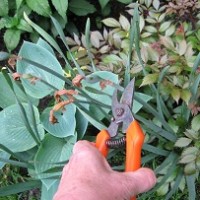
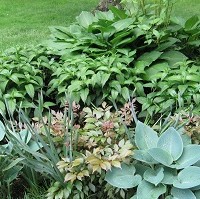 Pictured here are two instances of daffodil inter-planting. In the wet area of my yard, the hostas, astilbe, turtlehead have emerged and I can tuck the foliage behind these companion plants until it has completely died back. The foliage will continue to make food with plenty of sunlight and grow the bulk of the bulbs, then the summer perennials will fill the space left behind as the daffodils recede.
Pictured here are two instances of daffodil inter-planting. In the wet area of my yard, the hostas, astilbe, turtlehead have emerged and I can tuck the foliage behind these companion plants until it has completely died back. The foliage will continue to make food with plenty of sunlight and grow the bulk of the bulbs, then the summer perennials will fill the space left behind as the daffodils recede.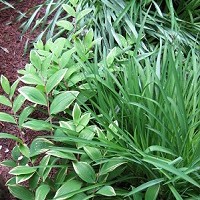
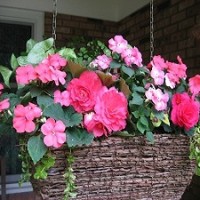 Since a container garden must share the same watering requirement and light level, taking care to select compatible companions is helpful. Consider these hanging baskets I made from two window boxes back to back. They are hung from their back loops by using chain link (painted with craft paint to reduce its sheen). The back window box has maidenhair fern, ivy, fittonia, and nepthytis and the front window box has creeping jenny/moneywort, coleus, tuberous begonia, and impatiens. Since I will never rotate these, the front box will get brighter light and the back box will be even more shaded and moist. I like the stewardship present as well since the maidenhair fern, ivy, fittonia and nepthytis are all houseplants that I’m summering outdoors and the creeping jenny was recycled from early spring pots. I enjoy creating beautiful things primarily from what I already have on hand, plus an added item or two. Beauty from season to season!
Since a container garden must share the same watering requirement and light level, taking care to select compatible companions is helpful. Consider these hanging baskets I made from two window boxes back to back. They are hung from their back loops by using chain link (painted with craft paint to reduce its sheen). The back window box has maidenhair fern, ivy, fittonia, and nepthytis and the front window box has creeping jenny/moneywort, coleus, tuberous begonia, and impatiens. Since I will never rotate these, the front box will get brighter light and the back box will be even more shaded and moist. I like the stewardship present as well since the maidenhair fern, ivy, fittonia and nepthytis are all houseplants that I’m summering outdoors and the creeping jenny was recycled from early spring pots. I enjoy creating beautiful things primarily from what I already have on hand, plus an added item or two. Beauty from season to season!
 Love the Lord your God…and your neighbor as yourself. Being in community and FOR one another may involve risking any of these:
Love the Lord your God…and your neighbor as yourself. Being in community and FOR one another may involve risking any of these: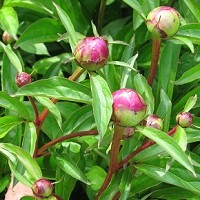 When I worked at Home Depot, I could guarantee this query at least a dozen times each weekend that the peonies were in bloom. Gardening has its share of pieces of Folk Wisdom and this isn’t one of them.
When I worked at Home Depot, I could guarantee this query at least a dozen times each weekend that the peonies were in bloom. Gardening has its share of pieces of Folk Wisdom and this isn’t one of them.  Peonies enjoy full to part sun, are heavy feeders, and come in singles and doubles as well a variety of colors. They can endure in the same location for decades and reward you with their beauty in the spring and their durable shrub-like foliage until the fall. They require some additional care with respect to planting depth and are best divided in the fall in order to bloom happily. They are some of the oldest cultivated plants for good reason—they are truly among the masterpieces of May.
Peonies enjoy full to part sun, are heavy feeders, and come in singles and doubles as well a variety of colors. They can endure in the same location for decades and reward you with their beauty in the spring and their durable shrub-like foliage until the fall. They require some additional care with respect to planting depth and are best divided in the fall in order to bloom happily. They are some of the oldest cultivated plants for good reason—they are truly among the masterpieces of May. This was brought home to me in a strange way. My husband and I have a dog named Harley—a smooth haired fox terrier. He attracts a lot of attention, particularly from children. Last evening, Harley was taking us for a walk when a little boy ran up and asked if he could pet our dog. The little boy smiled when I said “Yes” and then he looked at my face with the bandage from my surgery and asked, “What’s that?” I immediately thought of the medical answer and decided that wouldn’t be nearly as informative or age appropriate as the answer I gave him: “I had an owie on my face and so the doctor took it away.” The little boy said “Oh, that’s good.” While he was petting Harley, two little girls came running up to see Harley too, and one of them spoke for the pair and asked “What happened?” and they both pointed to their faces corresponding to where my bandage is. I gave them the same answer and they said, “Oh. OK.” After this episode, I talked with my husband about how I ran into a woman from church while I was at the store earlier and she also asked me “What happened?” I’m sure everyone I encountered was wondering about this prominent bandage, but only she—a friend—asked.
This was brought home to me in a strange way. My husband and I have a dog named Harley—a smooth haired fox terrier. He attracts a lot of attention, particularly from children. Last evening, Harley was taking us for a walk when a little boy ran up and asked if he could pet our dog. The little boy smiled when I said “Yes” and then he looked at my face with the bandage from my surgery and asked, “What’s that?” I immediately thought of the medical answer and decided that wouldn’t be nearly as informative or age appropriate as the answer I gave him: “I had an owie on my face and so the doctor took it away.” The little boy said “Oh, that’s good.” While he was petting Harley, two little girls came running up to see Harley too, and one of them spoke for the pair and asked “What happened?” and they both pointed to their faces corresponding to where my bandage is. I gave them the same answer and they said, “Oh. OK.” After this episode, I talked with my husband about how I ran into a woman from church while I was at the store earlier and she also asked me “What happened?” I’m sure everyone I encountered was wondering about this prominent bandage, but only she—a friend—asked. 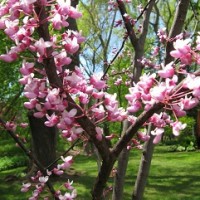

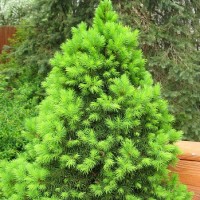
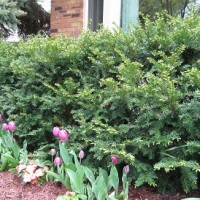
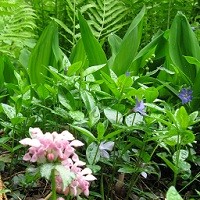
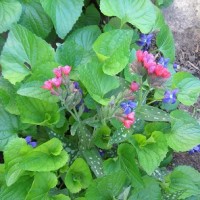
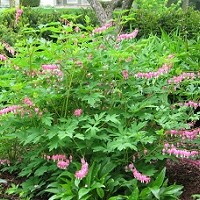
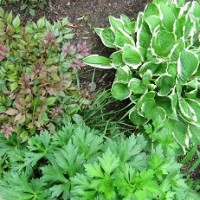
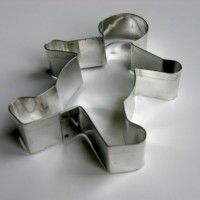 Isn’t it wonderful that when God set out to create human beings, that He made us each to be individuals? No cookie cutter, mass-produced, dime-a-dozen clones. Each one of us is handcrafted.
Isn’t it wonderful that when God set out to create human beings, that He made us each to be individuals? No cookie cutter, mass-produced, dime-a-dozen clones. Each one of us is handcrafted. I’ve been thinking about this a lot. As of this writing, I’m recovering from having a basal cell carcinoma lesion removed from my face. Once the pain and swelling go away, there will be a scar (hopefully it will not be too noticeable). But for Christians, these scars are our stigmata—the marks of life—as we pick up our cross and follow Christ on a journey of BE-ing in a fallen world.
I’ve been thinking about this a lot. As of this writing, I’m recovering from having a basal cell carcinoma lesion removed from my face. Once the pain and swelling go away, there will be a scar (hopefully it will not be too noticeable). But for Christians, these scars are our stigmata—the marks of life—as we pick up our cross and follow Christ on a journey of BE-ing in a fallen world. 
 God’s reign and rule can be upon our hearts and spread upon the earth. We will see His holiness and grace in the giving of the Law and in writing the Law on our hearts. Our role as regents will involve Law-abiding and Law illuminating/ witnessing in contrast to a world of sin while this earth remains.
God’s reign and rule can be upon our hearts and spread upon the earth. We will see His holiness and grace in the giving of the Law and in writing the Law on our hearts. Our role as regents will involve Law-abiding and Law illuminating/ witnessing in contrast to a world of sin while this earth remains. 